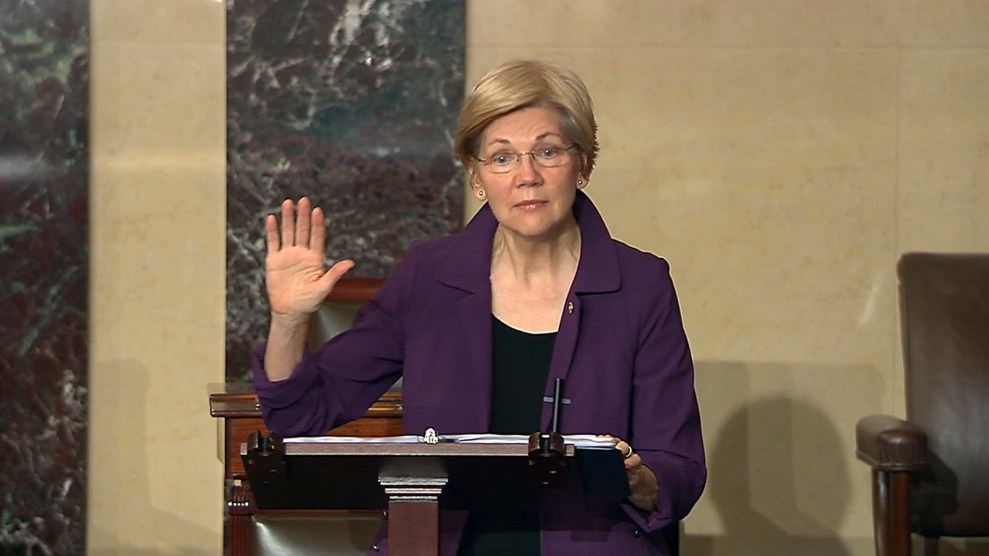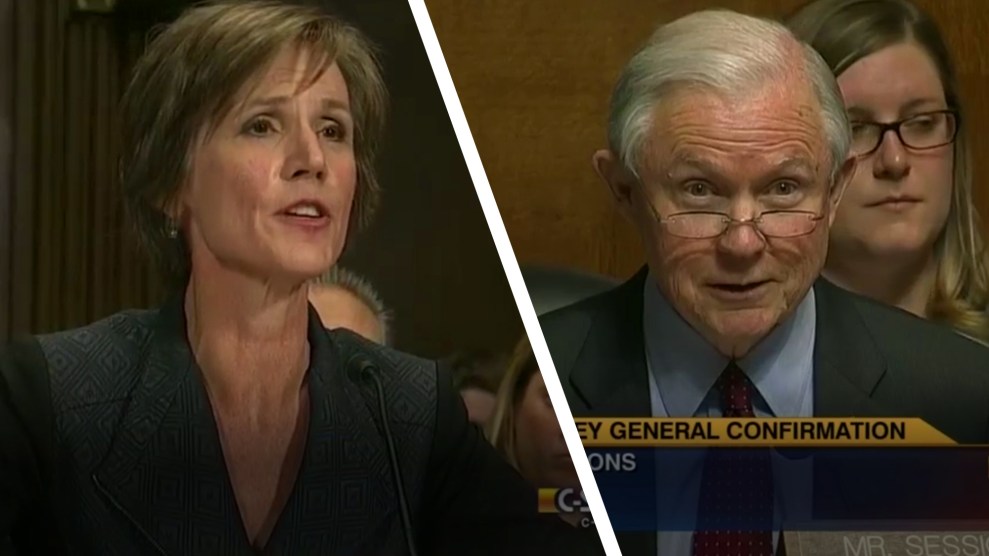
Senate TV via AP
Sometimes a gag is the best megaphone.
Senate Republicans banded together Tuesday night to block Sen. Elizabeth Warren (D-Mass.) from reading a letter Coretta Scott King, the widow of Dr. Martin Luther King Jr., wrote to oppose a judicial appointment for Sen. Jeff Sessions (R-Ala.) more than 30 years ago. But the move ignited a firestorm of resistance from Democrats, ensuring widespread attention to the letter itself. Prohibited from reading the letter in the Senate, Warren first discussed the episode on MSNBC and then, shortly before midnight, read it on Facebook Live to an audience of more than 2 million people. The hashtag #LetLizSpeak, as well as #CorettaScottKing, was trending on Twitter.
I spoke out about @SenatorSessions – until @SenateMajLdr McConnell decided to silence me. https://t.co/qbty7x0iLl
— Elizabeth Warren (@SenWarren) February 8, 2017
The episode began when Majority Leader Mitch McConnell suddenly interrupted Warren’s speech to a nearly empty chamber, objecting to her use of the letter King wrote to the Senate Judiciary Committee in 1986 when Sessions, then a federal prosecutor in Alabama, was nominated to a federal judgeship. The Republican committee chair at the time, Strom Thurmond of South Carolina, never entered it into the record, and it was published for the first time last month. When Warren read the sentence, “Mr. Sessions has used the awesome power of his office to chill the free exercise of the vote by black citizens,” McConnell objected, citing a rule that prohibits senators from impugning each other.
“I am surprised that the words of Coretta Scott King are not suitable for debate in the United States Senate,” Warren responded. She appealed McConnell’s objection, forcing the body to vote on the matter. Republicans, who control the chamber, provided 49 votes to rule her out of order, and Warren was forbidden to speak for the rest of the debate. “She was warned,” McConnell explained. “She was given an explanation. Nevertheless, she persisted.” By the end of the night, an online retailer was already selling T-shirts and sweaters with McConnell’s remarks, as well as the hashtag #resist.
Watch Warren read the letter:
Democratic lawmakers rushed to support Warren, realizing that McConnell had handed them a golden opportunity—days into Black History Month, the GOP was trying to silence the words of Coretta Scott King. And Republicans appeared to have realized it too: When Sen. Jeff Merkley (D-Ore.) decided to read the letter aloud hours later, he did so uninterrupted.












